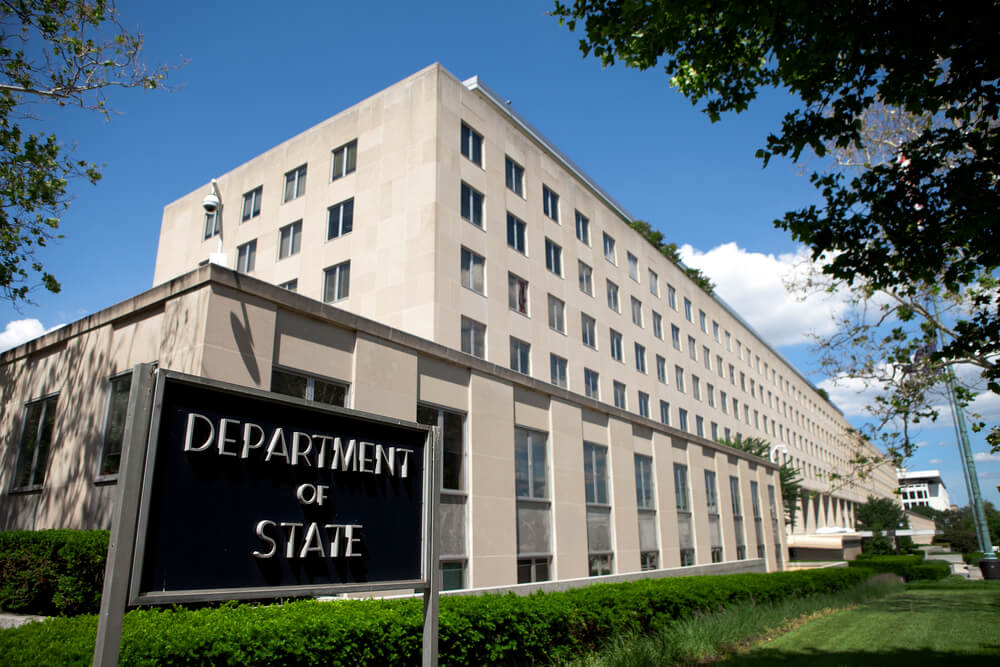News outlets in early May reported that Secretary of State Marco Rubio plans to remove the U.S. Office of the Security Coordinator (OSC) in Jerusalem as part of a broader plan to “reorganize” and reform the State Department.
While the administration has not yet confirmed these reports, the timing of this development is unsurprising, given the plans to fire 15% of U.S.-based State Department staff, the termination of USAID programs, the “consolidation” of more than 100 foreign policy bureaus and the gutting of State Department funding.
However, cutting the OSC endangers cooperation and coordination between the Israel Defense Forces (IDF) and Palestinian security forces in West Bank counter-terrorism operations and the prospect of a functional Palestinian security structure in post-war Gaza. Moreover, it threatens the safety of Israeli lives, especially at a time of heightened violence in the West Bank committed by Hamas and Palestinian Islamic Jihad.
Facilitating training for the Palestinian police
Currently, the OSC, under the purview of a three-star general, has facilitated training for Palestinian Authority National Security Forces (PASF) personnel. This includes the enhanced police training program that provides seven-week trainings on security operations to roughly 500 Palestinian civil police, and 10-week courses to train and develop Palestinian SWAT teams, which have begun operations to thwart terror cells in the West Bank.
Additionally, the OSC has ensured security cooperation between the IDF and the PASF. Most recently, this coordination is evident in the West Bank city of Jenin, notorious as a base of operations for Palestinian terror cells. Deemed operation “Iron Wall,” the IDF launched an extensive raid of the city in January with PASF forces instrumental in arresting 120 militants who fled to nearby areas, according to PASF spokesman Brig. Gen. Anwar Rajab. Such understanding and trust would not be possible without OSC assistance and its coordination with the IDF and PASF.
Moreover, Shin Bet thwarted many terror attacks in the West Bank and Jerusalem (1,032 attacks in 2023 and 1,040 in 2024), according to the Institute of National Security Studies, an Israeli think tank in Tel Aviv. Israel’s domestic security agency, Shin Bet would likely not be as effective without assistance from Palestinian intelligence, coordinated by the OSC.
Altering the security apparatus in such a substantial way, especially at a time of rising violence in the West Bank, directly harms Israeli lives.
Hindering Israel, Palestine coordination
Terminating the OSC will hinder IDF-PASF coordination, especially as the PA is spearheading reforms to mold itself into a force capable of handling the security challenges in post-war Gaza and in the West Bank. Risking a weakened Palestinian security force may also require the IDF to increase its presence in the West Bank, which may obstruct current operations in Gaza, Lebanon and Syria.
Furthermore, recent steps by PA leadership indicate that it understands the necessity to reform into a trustworthy partner for potential postwar governance in Gaza. These include the reported cancellation of the prisoner and martyr payments system, President Abbas’s call for Hamas to disarm and release the remaining hostages in Gaza and the appointment of Hussein Al-Sheikh — described by Israeli and American counterparts as a “pragmatic moderate” — as PLO deputy (and likely Abbas successor).
As such, eliminating OSC is a mistimed step that may only weaken the PA’s ability to confront armed insurgents and subsequently increase Palestinian indignation toward American leadership.
In addition, both political parties in the U.S. recognize that the OSC is critical to maintaining stability in the region. In 2022, the Biden administration considered downgrading the coordinator’s rank from three-star general to colonel, but it rescinded that plan after significant bipartisan pushback led by Democrat Sen. John Ossoff of Georgia and Republican Sen. Lindsey Graham of South Carolina.
Eliminating the OSC risks disrupting the delicate security situation in the West Bank. An America-first mandate that abandons decades-long partnerships will consequently weaken U.S. influence in the region and potentially endanger the lives of some of America’s friends abroad.







